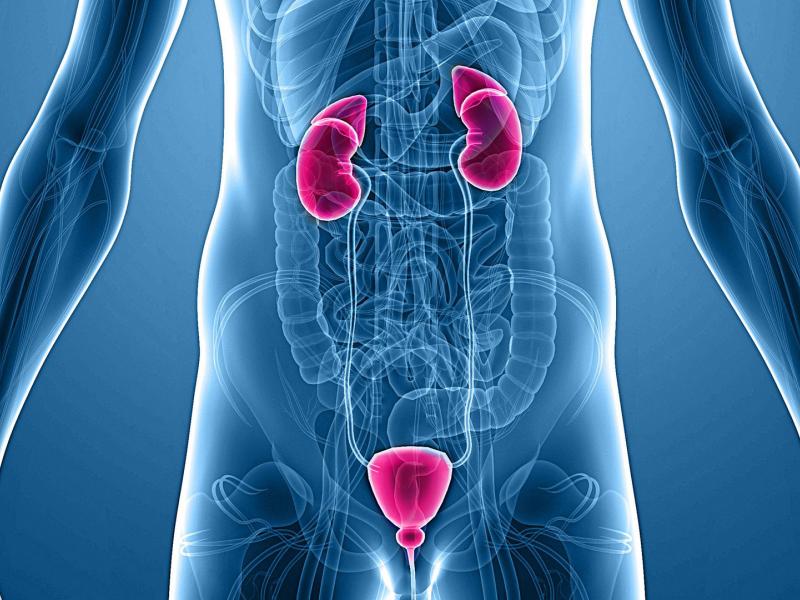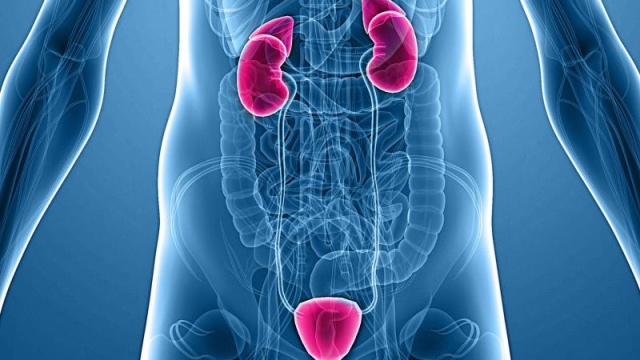Welcome to the captivating realm of urology, a branch of medicine that unveils the intricate mysteries surrounding the urinary system in both men and women. From the moment we are born, our bodies rely on this complex network of organs to regulate urine production, maintain electrolyte balance, and expel waste. Yet, despite its significance, urology remains a hidden treasure trove of knowledge, waiting to be explored.
At its core, urology delves into the realm of the urinary tract and its intricate facets. It encompasses the study and treatment of conditions ranging from common urinary tract infections to more intricate concerns such as kidney stones, bladder control issues, and even reproductive health. The field is a blend of surgical expertise and medical knowledge, weaving together preventive care, diagnostic procedures, and state-of-the-art treatments. In the hands of skilled urologists, this enigmatic discipline unlocks a diverse array of treatment options aimed at restoring not only physical well-being but also enhancing the overall quality of life.
Beyond the medical jargon and surgical precision, urology touches the lives of countless individuals, often in unexpected ways. It holds the power to restore confidence, offering hope to those grappling with the challenges of urinary incontinence or erectile dysfunction. Urologists skillfully navigate the realm of fertility, working tirelessly to assist couples on their journey towards parenthood. Moreover, urology intertwines with other specialties, aligning efforts to combat prostate cancer, deliver comprehensive care to patients with kidney disorders, and advance our understanding of the intricate connections between the urinary system and overall health.
Prepare to embark on an enlightening exploration of urology, where we’ll journey through the complexities of this fascinating field. Join us as we unravel the mysteries and unveil the secrets hidden within the world of urology, shedding light on the remarkable progress and significant impact it holds for patients from all walks of life. Welcome to a world where medical expertise meets human compassion, and where a comprehensive understanding of the urinary system builds the foundation for a healthier tomorrow.
Advancements in Urological Procedures
Advancements in urological procedures have revolutionized the field of urology by offering more effective and less invasive treatment options for various urinary tract conditions. These advancements have significantly improved patient outcomes and overall quality of life.
One notable advancement is the development of minimally invasive surgical techniques. These procedures, such as laparoscopy and robotic-assisted surgery, have become increasingly popular in urology. They involve smaller incisions, reduced blood loss, and faster recovery times compared to traditional open surgeries. By utilizing advanced technology and specialized instruments, urologists can perform delicate procedures with greater precision and accuracy.
Another significant advancement is the use of laser technologies in urological procedures. Laser ablation and laser lithotripsy have proven to be highly effective in treating urinary stones. Laser ablation involves the precise destruction of abnormal tissues, such as tumors, while laser lithotripsy is used to break down kidney stones into smaller fragments that can be easily passed or removed. These techniques minimize the need for invasive surgeries or prolonged hospital stays, leading to quicker recovery and reduced complications.
Furthermore, the field of urology has witnessed remarkable progress in the management of urinary incontinence, a common condition affecting both men and women. Injectable bulking agents have been developed to treat stress urinary incontinence by strengthening the urethral sphincter. These agents are injected into the tissues surrounding the urethra, resulting in improved control and reduced leakage. This minimally invasive approach has transformed the way in which urinary incontinence is managed, providing a promising option for patients who may not be suitable candidates for traditional surgeries.
In conclusion, the advancements in urological procedures have paved the way for more efficient, precise, and patient-friendly treatments. Minimally invasive surgeries, laser technologies, and innovative approaches for managing urinary incontinence have significantly improved outcomes and patient satisfaction. As urology continues to evolve, it is expected that further advancements will further enhance the field and bring about even greater benefits for individuals facing urinary tract conditions.
Common Urological Conditions
In the field of urology, there are several common conditions that individuals may encounter. These conditions can vary in their severity and impact on daily life. Understanding these urological conditions is crucial for both patients and healthcare professionals alike.
One such condition is urinary incontinence, which refers to the inability to control bladder function. This condition can lead to involuntary leakage of urine, causing embarrassment and discomfort for those affected. Urinary incontinence can be caused by various factors such as weakened pelvic muscles, nerve damage, or underlying medical conditions.

Another prevalent urological condition is urinary tract infections (UTIs). UTIs occur when bacteria enter the urinary tract and multiply, causing infection and inflammation. Symptoms of UTIs may include frequent urination, a burning sensation during urination, and cloudy or bloody urine. Prompt treatment of UTIs is essential to prevent complications and further spread of the infection.
Kidney stones are also a common urological concern. These hard deposits form in the kidneys when certain substances in the urine crystallize. As kidney stones move through the urinary tract, they can cause intense pain, difficulty urinating, and blood in the urine. Treatment for kidney stones depends on their size and location, ranging from medications to surgical interventions.
Understanding these common urological conditions can help individuals recognize symptoms, seek appropriate treatment, and adopt preventive measures. Whether it is urinary incontinence, UTIs, or kidney stones, consulting a urologist is crucial to receive timely and effective medical care.
Role of Urologists in Overall Health
Urologists play a crucial role in maintaining our overall health. They specialize in the diagnosis and treatment of diseases and conditions related to the urinary system and the male reproductive system. By focusing on these specific areas, urologists are able to provide specialized care and contribute significantly to our well-being.
One important aspect of a urologist’s role is the detection and management of urological cancers. With their expertise in this field, they are able to identify and treat various types of cancer that can affect the urinary system, including bladder, kidney, and prostate cancer. Their efforts in early detection and treatment play a vital role in improving patient outcomes and saving lives.
Urologists also address conditions such as urinary tract infections, kidney stones, and urinary incontinence, which can significantly impact an individual’s quality of life. By diagnosing and treating these conditions effectively, urologists help patients restore normal functioning and alleviate discomfort.
In addition, urologists provide specialized care for male reproductive health. They are skilled in diagnosing and treating conditions like erectile dysfunction, male infertility, and prostate issues. Through their expertise, urologists help individuals overcome these challenges, thereby improving their reproductive health and overall well-being.
In conclusion, urologists play a crucial role in our overall health by specializing in the diagnosis and treatment of diseases and conditions related to the urinary system and male reproductive system. Their expertise in detecting and managing urological cancers, addressing various urological conditions, and providing specialized care for male reproductive health greatly contributes to our well-being and quality of life.
